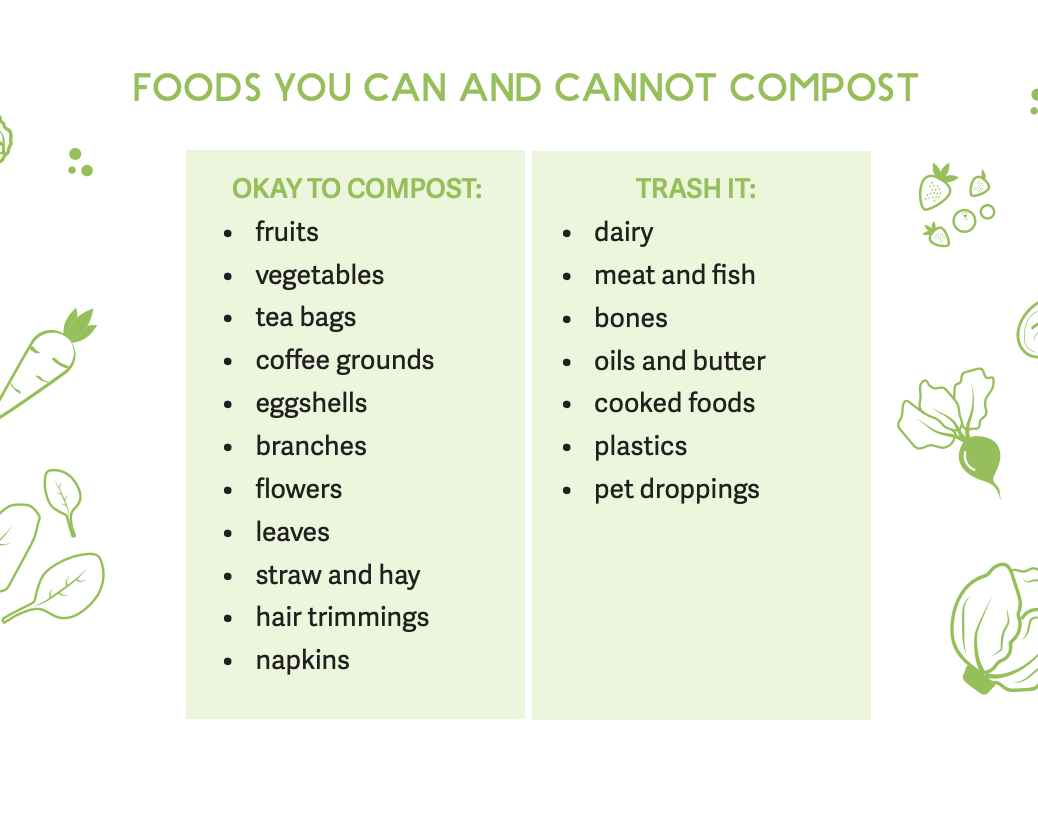5 Reasons to Compost + Tips for Beginners

When you're cooking up a delicious meal like a buddha bowl or a veggie-packed smoothie, you might find yourself with a pile of leftover scraps. Your broccoli stems, a banana peel, or avocado skin might find its way to the bottom of your garbage can but there's a less smelly, more eco-friendly way to dispose of your food scraps-- composting!
When you hear composting, you may think of farmers or earth-loving hippies with too much time on their hands. But in reality, composting is for everyone!
In only a few easy steps, you can easily implement composting into your routine. Read on to learn more about how easy it is to start composting and how this simple kitchen hack makes a huge impact on the health of our planet.
What is composting?
Composting is the natural process of collecting food scraps and other organic materials to turn them into a nutrient-rich fertilizer. This process helps keep your food waste in landfills. Plus, if you’re eating the food you grow, then it’s better for your health, too!
Benefits of composting
So you know that composting is good for the environment, but why? Composting is a simple way to help reduce your ecological footprint, but it also has a huge impact on the health of the planet. Here are just some of the way composing makes a difference:
Helps to decrease greenhouse gas emissions
Reduces waste
Reduces the amount of waste that ends up in a landfill
Strengthens soil
It’s fun and easy to learn!
How to compost
If you’re ready to start composting grab your garden gloves and a shovel and let’s dig in!
Here’s what you’ll need to start your very own compost pile…
A SCRAPS BIN - This is what you will use to add your kitchen scraps to-- a small trash bin with a lid will do!
THE RIGHT SPACE - You don’t need a big yard to compost, but you will want to find a shaded spot that’s easy to get to.
A COMPOST BIN - There are plenty of compost bins to choose from. There’s everything from wooden composters, to tumbling composters – but something simple, with a lid (for critters), is the cheapest option. You can also find kitchen compost bins (like this one, from Target)
GARDEN SHEARS- Shears will help chop garden debris, such as twigs and branches.
A PITCHFORK OR SHOVEL- You probably won’t want to use your hands to turn your compost pile, but if you do, we won’t judge you.
6. STRAW- This one is optional but it can help soak up excess moisture and reduce the smell.
7. FOOD SCRAPS- You have the tools, now all you need are your food scraps!
To get started, begin your compost by layering twigs, hay, or branches on the bottom. This will help aerate it, and will prevent it from getting slimy and stinky at the base. Chop and shred your bulkier materials, or yard waste (leaves, branches, twigs) with a pair of garden shears to help it decompose. Then, begin layering equal parts kitchen scraps and yard waste- this will help activate the soil! The mixture should be somewhat moist, if it’s not, lightly water it until damp. Cover with straw and let sit. Do not pack down.
After 3-7 days you can use a shovel to turn your pile for the first time. This will help combine the layers and speed up decomposition. Once your compost matures, you can turn it less frequently. Continue adding to your compost pile and voila! You now have a healthy compost to mix into your flower and vegetable beds, or blend with potting soil to revitalize indoor plants.
FOODS YOU CAN AND CANNOT COMPOST

City dwellers, don’t worry- you don’t need to be in a rural area or a big house to start composting! Anyone can compost, no matter where you are.
If you don’t have a yard or outdoor space, you can pick up a kitchen compost bin or a Lomi (check this one out here) to get you started on your composting journey. Another option is to freeze your scraps and dispose of them at a local compost spot.
Bottom line, there are so many options for composting and no one “right” way to do it!
Californians, if you are seeking EVEN more incentives to start composting, California just passed a new law that requires food waste to be composted. Other states should follow suit!
Composting can help you cultivate an eco-friendly home that you (and the earth) can feel good about. We are all in this together to reduce food waste and create a happier and healthier planet for all!





